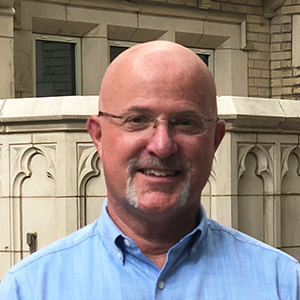
Photo by teambrownsville.org
Trying to follow the news reports of what’s going on at the border states in the US can be both confusing and distressing. And, regardless of our politics or thoughts on immigration, the news of families in detention centers or children separated from their families, or now, people living in refugee encampments on the Mexico side of border towns while they wait for court hearings is nothing short of a humanitarian crisis.
As a result of these constantly changing developments, many in the church are asking, “What is the church’s role in all this?” and “What is the Christian response to these complex problems?”
In late July, FUMCFW Community Advocate Charme Robarts represented First Church by traveling with Texas Impact (a Texas interfaith coalition) and the Texas ACLU to do three things. First, their task was to observe court hearings of people seeking asylum.

Photo by teambrownsville.org
Because the backlog of cases and the pressure on judges to rule on thousands of cases quickly, the ACLU has concerns about the application of due process. Quite often, judges under these pressures are hearing several cases at one time, with several detainees being represented by a single public defender. Texas Impact and the ACLU created the program for citizens to come and observe to help assure that due process is applied even in these hasty court appearances.
The second purpose of the trip was to visit respite centers. At these centers, people who were granted a temporary stay in the US because they had established credible fear of persecution in their home country were waiting for family members or sponsors already in the US to send bus or plane fares so they could travel to another city to wait until their official asylum hearing date was set.

Photo by teambrownsville.org
On the day that Charme and her team visited Catholic Charities in McAllen, just about an hour from Brownsville, there were about 400 people in the respite center receiving food, showers, clean clothes, a cool place to sit or lie on a mat for the 1 – 2-day wait for their bus or plane tickets to arrive. These large numbers of people had been steady for several months.
“As I walked around in that facility, I looked into the faces of these men, women and children, I tried to read their emotions,” Charme says. “I wondered about their long journeys and where they had come from. I’m sure they were a bit scared. But they were safe at the moment, and they could rest and eat and shower. Children sat at tables with crayons and books. I engaged some little boys in making paper airplanes. One little girl, trusting and happy, told me all kinds of things in her sweet animated voice,” she adds, smiling. “It didn’t matter that I didn’t understand a word she said.”
The team also visited Good Neighbor Settlement House, a Methodist outreach center which also receive and care for people who were waiting to join sponsors in the US and to await their court hearing. “Again, we experienced the goodwill of the people running the respite center, caring for their temporary visitors, and giving them rides to the bus station when it was time,” Charme relates. “It was an experience in realizing that although we can’t solve all problems, we are not completely immobilized; there is always something good to be done, and we can do it,” Charme said.
 But now things have changed
But now things have changed
Now, a little less than two months later, situations at the border have changed dramatically. When Charme and her team members were there, they also connected with a group called Team Brownsville, formed in 2018 when five or six retired school teachers observed the need and decided to do something about it.
“Team Brownsville’s Facebook page says, ‘we are not a political group, we are not a church group, we are not a charity group—we are humans helping humans,’” Charme explains. “I think this is a really good place to stand in a complex situation where people disagree about whether we should make room for immigrants. While we argue about this as a country, the least we can do is feed people who are hungry.”
Team Brownsville started out serving food for a group of 50 or so migrants who were waiting on the Matamoros side of the bridge. “The wait at the time for a hearing was maybe a few hours or sometimes a day or so, “says Charme.
They could not have imagined the situation as it now stands.

Photo by teambrownsville.org
The current ruling, called “Remain in Mexico,” means that asylum seekers from Central America (where the bulk of migrants are from) who pass through another country before getting to the US port must wait in Mexico for their number to be called to come to the US check point. The result is that over the past several weeks the numbers of people at the Brownsville/Matamoros border is up to around 500 people, and the wait for them is even longer than before. Team Brownsville has expanded and responded as best they can to meet the need.
Speaking by phone this week to the Team Brownsville volunteer coordinator, Charme learned that many volunteers with Team Brownsville use the kitchen at the Good Neighbor Settlement House to prepare food and then take it across the bridge to the campers. Others cook from their homes, and still others pay restaurants in Matamoros to prepare the food for them to deliver. The team has also provided some tents and yoga mats for people to sleep on.
Courts in Tents
Over the past few days we’ve learned that “tent courts” have been set up in Brownsville and Laredo. In these tents, asylum seekers appear before judges they see on large screen TVs. And, because of the shortage of attorneys to meet the needs of so many on both sides of the border, many speak to the judges without legal representation.
 To help meet these growing legal needs in several US border towns, many groups including the Methodist organization, Justice For our Neighbors are working to send attorneys to Matamoros to provide legal assistance and representation to those who are facing these brief and critical hearings without benefit of legal advice. Next week, Justice For Our Neighbors will also send attorneys to Tijuana to advise people waiting for asylum hearings there.
To help meet these growing legal needs in several US border towns, many groups including the Methodist organization, Justice For our Neighbors are working to send attorneys to Matamoros to provide legal assistance and representation to those who are facing these brief and critical hearings without benefit of legal advice. Next week, Justice For Our Neighbors will also send attorneys to Tijuana to advise people waiting for asylum hearings there.

The JFON crew’s day in Tijuana began at 7 a.m. and ended usually after 7 p.m. Here they take a quick break to send us this photo.
“They may arrive here through the border we share with Mexico, but our asylum-seeking clients come from all over the world,” states Angela Edman, Managing Attorney for DC-MD JFON, from their video, Which Side Are You On? “They come from countries like Venezuela, Cuba, Cameroon and Iran. These are people who have risked everything — and many have lost everything except for faith and hope. We have both the ability and the moral duty to help.”
With all of this in mind, as a faith community we understand that above all, the crisis at the border calls for our attention and prayer. To assist both Team Brownsville with feeding those who are hungry as they wait for their asylum hearing and Justice For Our Neighbors who are providing free legal assistance for these hearings, FUMCFW has decided to use outreach funds to contribute $750 to Team Brownsville and $750 to Justice For Our Neighbors.

Waiting in line at El Chaparral. Photo courtesy of Genesis Lazo
If you would like to make an additional, individual contribution, we’ve set up a link to these organizations via Shelby Quick Give — use the button below to make your gift.
To learn more about Team Brownsville, please visit https://www.teambrownsville.org; to learn about Justice For Our Neighbors, please visit https://njfon.org.

